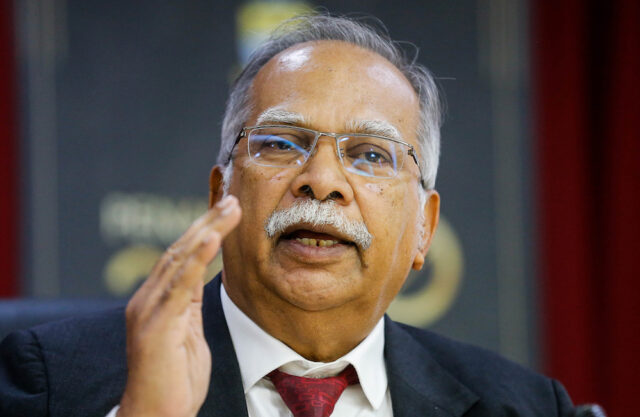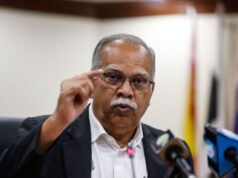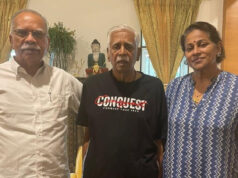 COMMENT BY YB PROF DR P.RAMASAMY, DEPUTY CHIEF MINISTER II, PENANG
COMMENT BY YB PROF DR P.RAMASAMY, DEPUTY CHIEF MINISTER II, PENANG
Recently there have been a spate of articles about the need to bring new and young leaders to helm the country’s leadership. It has been argued that the country seems to be focusing too much on leaders in their 70s, 80s and even in their 90s.
In other words, there is hardly any discussion on the need to bring in leaders in their 40s, 50s and 60s. This lack of serious thinking on leadership has meant among other things that Malaysians have to choose among the bad few alternatives in the older bracket.
Essentially, it talks about focusing on the younger age groups not those beyond the 70s.
I can understand why such kind of argument is being pursued as Malaysians are literally getting fed up with the existing leaders who are in invariably locked in the older group. In fact, given their past performance, they are no alternatives at all. In fact, considerations of alternatives have been expunged in the oppressive politics of extremism.
It must remembered those leaders who are in their 70s and beyond and who played a significant role in politics have tarnished their reputation before they even reached their 70s, with the exception of one or two.
In other words, the “crime” was committed when they were in their 50s and 60s. They merely continued their disastrous performance in their 70s, 80s and 80s.
Thus, the continuity of certain leaders spanning different age groups defeats the argument that persons in different age groups are not linked.
It is important to note that leaders in the two age groups might be not mutually exclusive, despite the passage of time.
The argument in favour of infusing new blood might have some merits. With the coming of young leaders, much time and energy could be spent on improving the lives of ordinary people.
Determining effective leadership on the question of age might miss other important criteria necessary for leadership such honesty, decency, fairness and others.
There is nothing to tell that young leaders have great qualities whereas those in the older group are devoid of values that are in demand.
The age group argument is an oversimplification. Leadership cannot be solely determined on age considerations. It is not necessarily leaders in the older age bracket are by definition inefficient, undemocratic and bigoted.
Some leaders in the older group might have been terrible leaders. We have a few in the country.
Really, we cannot throw the baby with the bath water. Just because of few bad leaders in the old-age group, we simply cannot condemn others who might be in this age group, just because there are some incorrigible bad apples.
Just because Muhyiddin and Mahathir crested immense problems for the country, it is certainly not right to condemn other leaders in this age group.
Focusing solely on the age group factor doesn’t add anything of value to political change and democratisation.
It is not necessarily that leaders in the younger age group are better than those in the older age group. There have cases of young and aspiring leaders falling out to due corruption and scandals.
Good and progressive values necessary for effective leadership is not the sole preserve of one or the other group.
The country needs leaders who are prepared to take the responsibility to steer the country away from the toxicity politics of race and religion.
There is no guarantee that young leaders can automatically provide the much sought after leadership.
Yes, some of the known older leaders have failed the country, but they failed when before even they entered the older age group bracket. They just continued with their toxic politics as they grew older.
Discussions about the kind of leadership necessary for multi-racial Malaysia must go beyond the specious age group thesis.
It must embrace honesty, fairness, justice, commitment and others to steer the country from the entrapment of racist and religious extremism.
This is the starting point of any analysis as what constitutes proper leadership for Malaysia.










